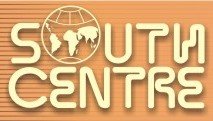The outcome of Economic Partnership Agreement (EPA) negotiations, set for this December, will change a decades-old reciprocal trading regime between the European Union (EU) and African Caribbean Pacific (ACP) countries. Specifically, negotiations on trade in services under the EPAs have important development implications for Eastern and Southern African (ESA) countries, states Joy Kategekwa, Programme Officer at South Centre in her article "Traps Africa must avoid in talks with EU" published in the The East African (Kenya) newspaper.
The countries that constitute the ESA negotiating group are Burundi, Democratic Republic of Congo, Djibouti, Eritrea, Ethiopia, Kenya, Madagascar, Malawi, Mauritius, Rwanda, Seychelles, Sudan, Uganda, Zambia, and Zimbabwe, many of which are also the poorest and least developed in the world. For them, ensuring universal access to basic services such as health, education, sanitation, and water, as opposed to exporting services — which is the rationale behind a free trade agreement, is the real priority, and challenge.
Read complete article at: http://www.nationmedia.com/eastafrican/current/Opinion/2110200724.htm







 South Centre organized its Fourth South Innovation Perspectives Seminar on 24 October at Palais des Nations, Geneva.
South Centre organized its Fourth South Innovation Perspectives Seminar on 24 October at Palais des Nations, Geneva.







 The South FACE captures the sound bytes from the eminent speakers: Dr. Nagesh Kuman (Director-General, RIS), H.E Dr. A.M Maruping (Ambassador of Lesotho, LDC-Group Coordinator), Dr. Carolyn Deere (Global Trade Governance Project, Oxford University) and Dr. Manfried Elsig (World Trade Institute, University of Berne) who spoke in the panel in the monring.
The South FACE captures the sound bytes from the eminent speakers: Dr. Nagesh Kuman (Director-General, RIS), H.E Dr. A.M Maruping (Ambassador of Lesotho, LDC-Group Coordinator), Dr. Carolyn Deere (Global Trade Governance Project, Oxford University) and Dr. Manfried Elsig (World Trade Institute, University of Berne) who spoke in the panel in the monring.













